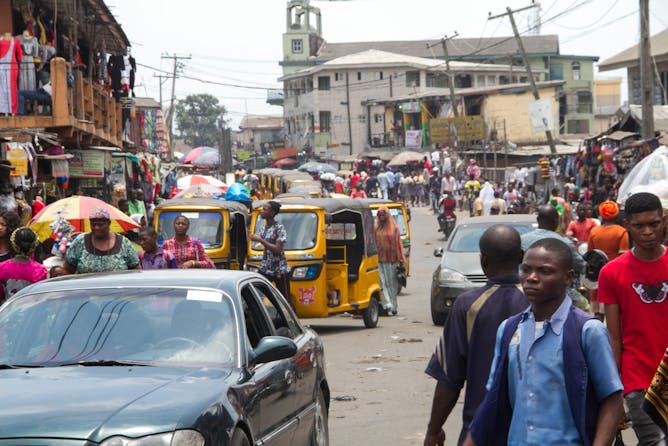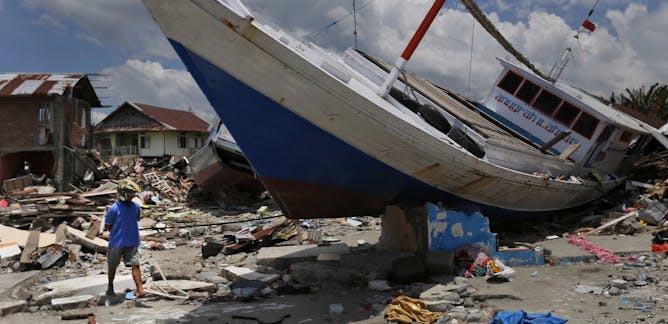|
All sorts of grand narratives have emerged about poverty – and its defeat - in the world. This is true in Africa too. One example is the “Africa Rising” storyline that become ubiquitous a few years ago. But are these narratives based on sound evidence? Zuhumnan Dapel argues not. This is because they lack a nuanced understanding of what constitutes poverty, including the fact that it is never a static state. Understanding this is critical for countries like Nigeria if they’re ever going to launch a successful war on poverty.
Ethiopian Prime Minister Abiy Ahmed has been lauded for his change agenda, which started with an historical peace deal with Eritrea, and now includes his appointment of a gender-balanced cabinet. He has also created a ministry of peace. But for his cabinet changes to work, Ahmed needs to embrace democracy within the ruling coalition. Yohannes Gedamu explains.
|

Ajegunle City, Lagos State Nigeria in 2018: Busy streets bustling with commercial activity.
Shutterstock
Zuhumnan Dapel, Scottish Institute for Research in Economics
A study of the mobility of poverty, or the movement of people in and out of poverty over time, provides a much more accurate picture.
|

Ethiopian Prime Minister, Abiy Ahmed, has created a peace ministry to stabilise the East African nation.
Yoweri Museveni/Flickr
Yohannes Gedamu, Georgia Gwinnett College
Ethiopian Prime Minister, Abiy Ahmed, has created a peace ministry but that may not be enough to stabilize the East African state.
|
Science + Technology
|

Marisa Eisenberg, University of Michigan; Andrew Brouwer, University of Michigan; Joseph Eisenberg, University of Michigan
Polio can be circulating through a community long before anyone is paralyzed. Monitoring sewage for the virus lets public health officials short-circuit this 'silent transmission.'
| |

Lindsay Schoenbohm, University of Toronto
Last month's earthquake in Sulawesi, Indonesia was large, but not huge. It was the aftereffects that made it so devastating.
|
|
|
Environment + Energy
|
-
Jessica Eise, Purdue University; Kenneth Foster, Purdue University
After declining for nearly a decade, the number of hungry people in the world is growing again. Climate change, which is disrupting weather patterns that farmers rely on, is a major cause.
|
|
Health + Medicine
|
-
Nick Haslam, University of Melbourne
The process of grieving can happen in stages. But these stages are rarely experienced in the same way by one bereaved person and another.
|
|
Education
|
-
John Nagle, University of Aberdeen
The recent arrest of Durham PhD student, Matthew Hedges has exposed the UAE’s limits on academic freedom.
|
|